In collaboration with the George C. Marshall European Center for Security Studies (GCMC), the Daniel K. Inouye Asia Pacific Center for Security Studies (DKI APCSS) held the Building Whole of Society Resilience workshop on June 12-15 in Garmisch, Germany. The event brought together 26 security practitioners from the European and Indo-Pacific theaters to discuss building whole-of-society resilience to hybrid threats in the two regions.
Dr. Michael Chase, U.S. Deputy Assistant Secretary of Defense for China, Taiwan, and Mongolia, participated in the workshop and provided opening remarks.
Said Chase, “We are here to exchange some lessons learned both from Europe and the Indo-Pacific and to talk about what we can do to build greater resilience and, more importantly, to identify some areas of cooperation going forward.”
On the first day, the participants arrived with varied understandings of the term “resilience.” Peter Gumataotao, director for DKI APCSS, began the discussion by referencing NATO’s definition of resilience as “the capacity, at the national and collective level, to prepare for, resist, respond to, and quickly recover from strategic shocks and disruptions, across the full spectrum of threats.”
Following a strict policy of non-attribution, the participants engaged in candid discussions on how their countries could improve resilience. The dialogue emphasized a whole-of-society approach that incorporates the government sector and all members of society. Throughout the workshop, the ongoing Ukraine-Russia conflict presented a case study for the participants to learn how their countries can build resilience to respond to coercion and aggression by a malign actor. Various other topics included:
- Countering economic influence or coercion.
- Improving humanitarian aid and disaster relief.
- Countering misinformation and disinformation.
In break-out working groups, the participants brainstormed practical applications for how they could improve good governance, build economic resilience and strengthen civil society.
Jose Victor Chan-Gonzaga is the assistant secretary for the Philippine Office of American Affairs. Through the workshop, Chan-Gonzaga gained insight into how Europeans have been dealing with the problem of hybrid threats and non-kinetic warfare more than most countries in the Indo-Pacific. Returning to the Philippines, he sees his country’s National Security Council need to integrate a whole-of-society approach when addressing critical issues like national infrastructure and economic coercion.
Ivar Ekman, a defense analyst for the Sweden Defense Research Agency, saw similarities in the conflicts and potential conflict in the two regions. Said Ekman, “Europe has a role to play even with smaller countries in the [Indo-Pacific].”
Yoichi Kato, special fellow at the Waseda Institute of Asia-Pacific Studies in Japan, benefitted from the workshop. Said Kato, “It was a great opportunity to understand the differences, focal points, and sub-elements for whole-of-society resilience in Europe and the Indo-Pacific regions.
It was enlightening, and I will bring the outcome of our discussions back to Japan and try to disseminate it.”
The Building Whole of Society Resilience workshop is intended to be the first of a series of events cosponsored by DKI APCSS and GCMC. While the two regional centers have partnered for alumni events and publications, the event represented the first in-person workshop cosponsored by the two institutions. While there are four other regional centers, DKI APCSS and GCMC are the two largest regional centers, with campuses in Honolulu and Garmisch, respectively.
Authorized under 10 U.S.C. § 342, the DoD Regional Centers for Security Studies (R.C.s) are international venues for bilateral and multilateral research, communication, exchange of ideas, and training involving U.S. and foreign military, civilian, and nongovernmental participants, utilizing their unique academic forums to build strong, sustainable international networks of security leaders. R.C.s are unique among institutional capacity building (ICB) providers, focusing on a primarily multilateral, inter-ministerial, senior-level audience.
The regional centers support the National Defense Strategy objective of strengthening alliances and attracting new partners by:
- Offering executive-development strategic-security studies, research, and outreach in rigorous outreach programs that foster long-term collaborative relationships.
- Developing and sustaining relationships and communities of interest among security practitioners and national security establishments, especially in defense, throughout the region.
- Enhancing enduring partnerships among the nations of the region.
- For more information about the George C. Marshall European Center for Security Studies, you can visit marshallcenter.org/en.
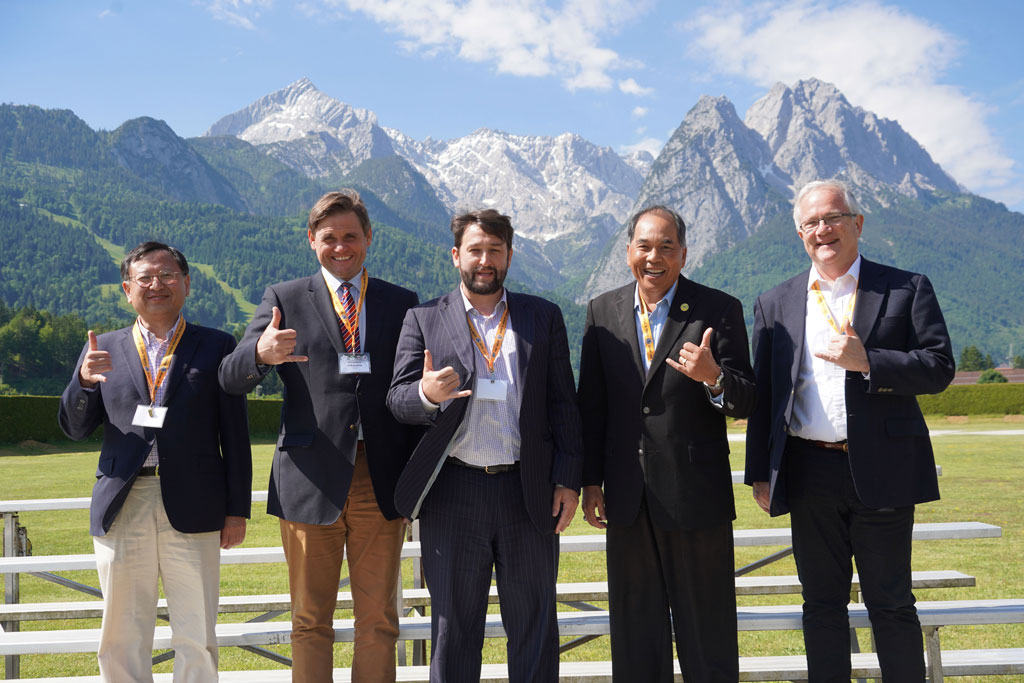
DKI APCSS welcomes four distinguished alums who are participating in the Building Whole of Society Resilience workshop June 12-15 in Garmisch, Germany. Pictured from right to left: Dr. Nam-Hoon Cho (TSC 12-1), Mr. Vilmantas Vitkauskas (CSRT 05-01), Dr. John Hemmings (CCMC 16-1), Director Pete Gumataotao and Dr. Andrew Scobell (Executive Course 03-1).


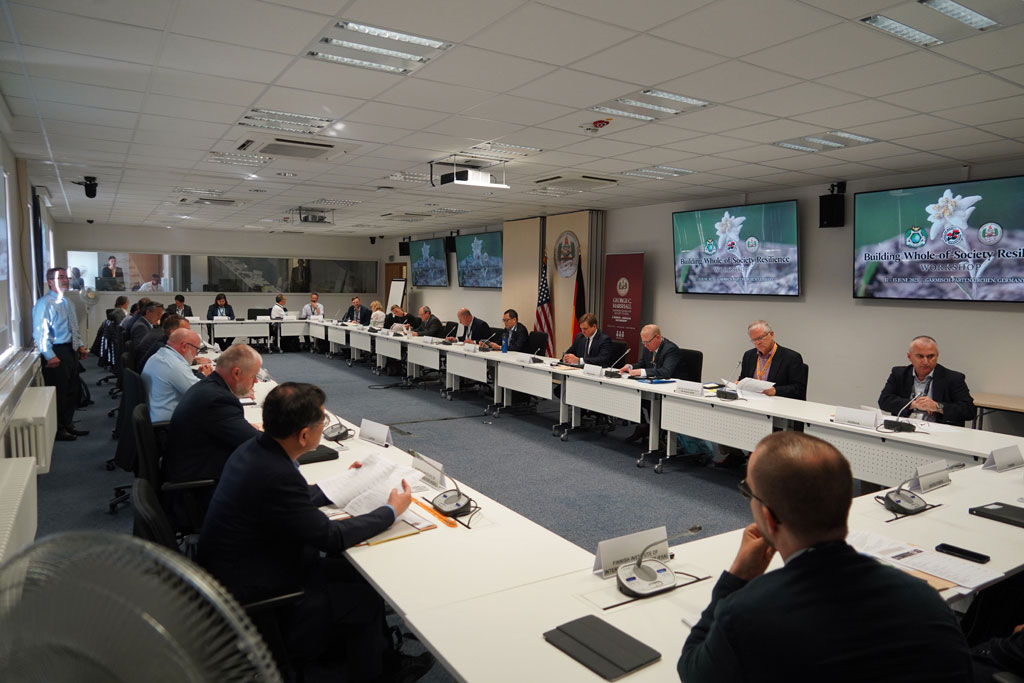
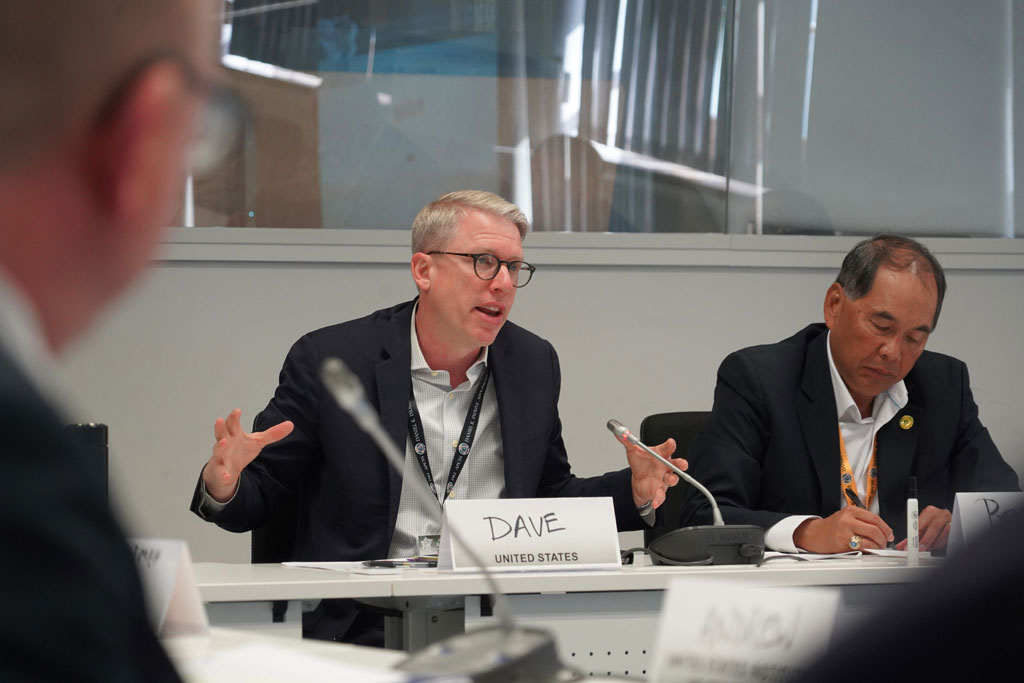
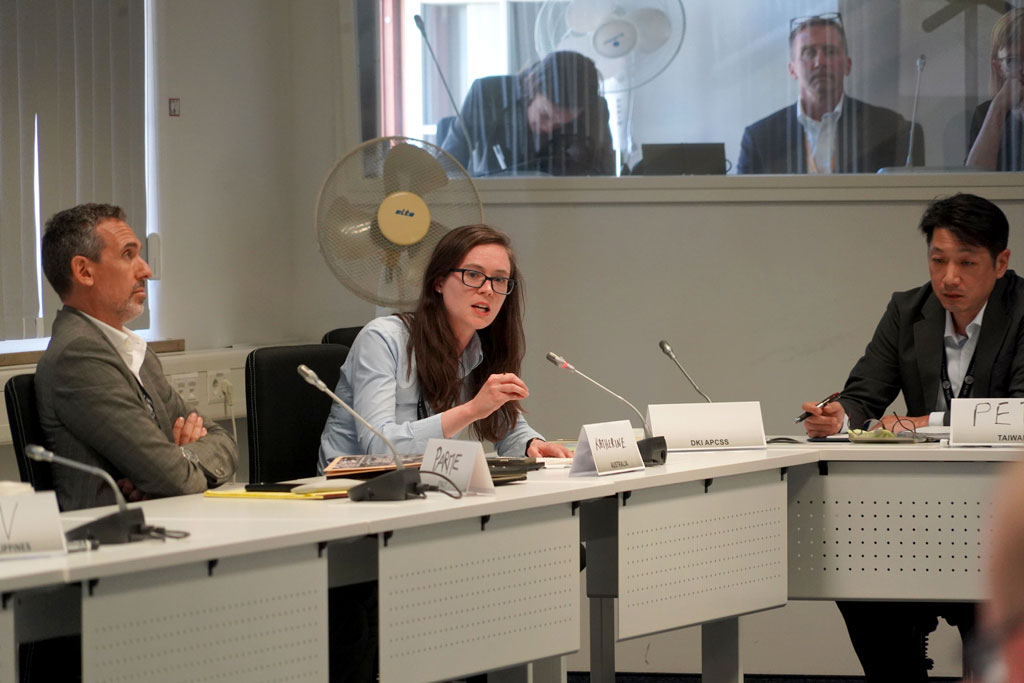
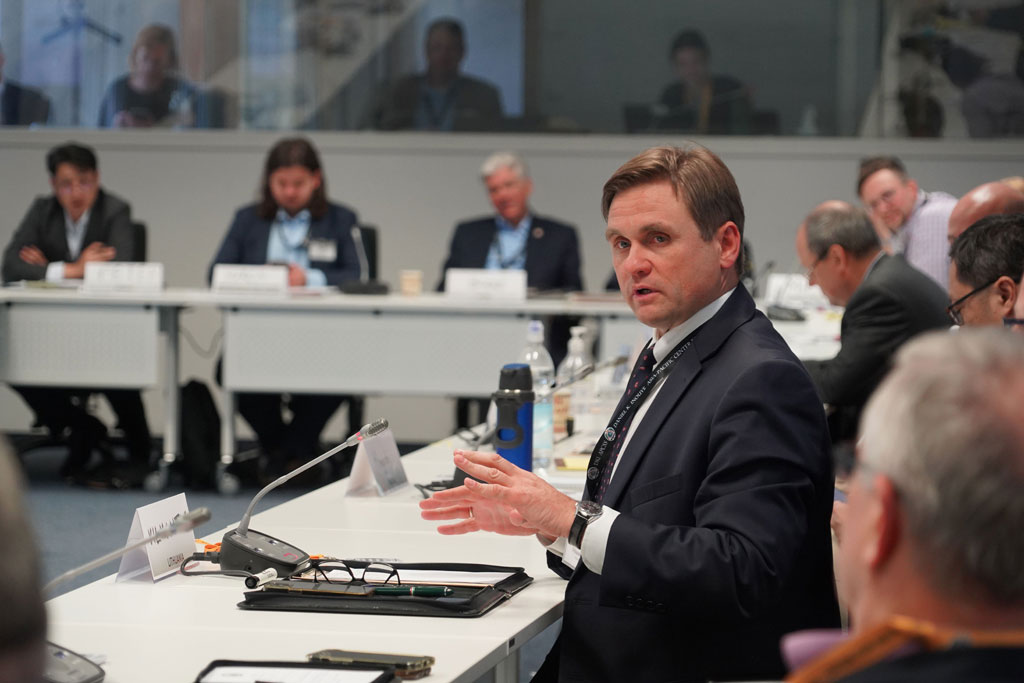
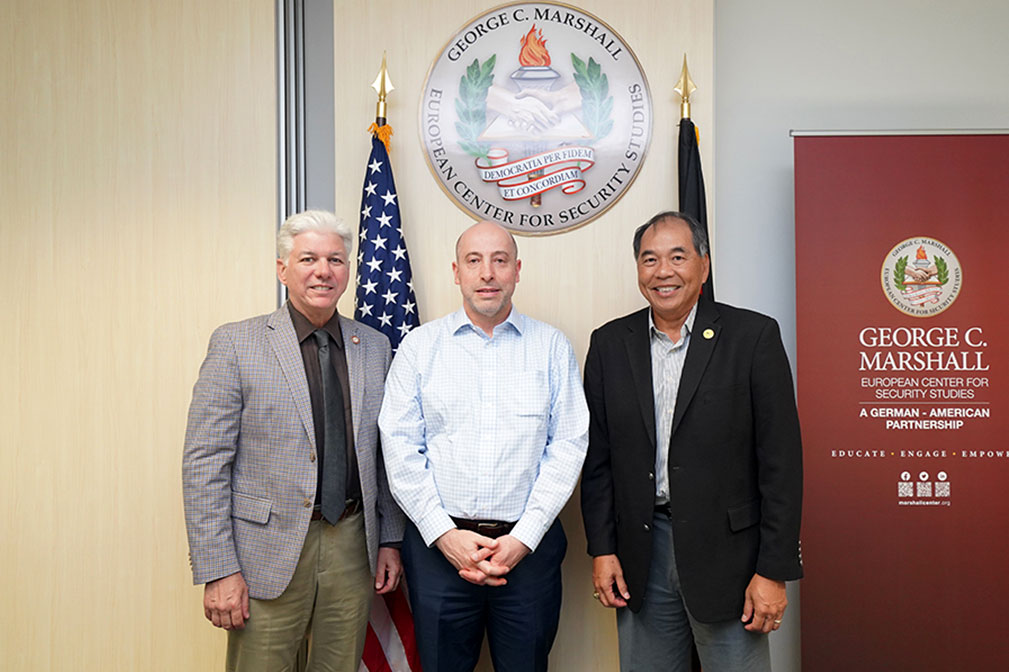
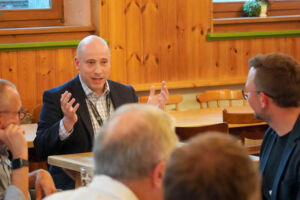
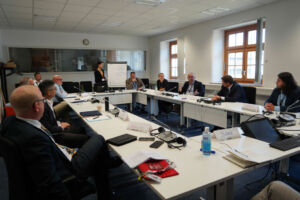
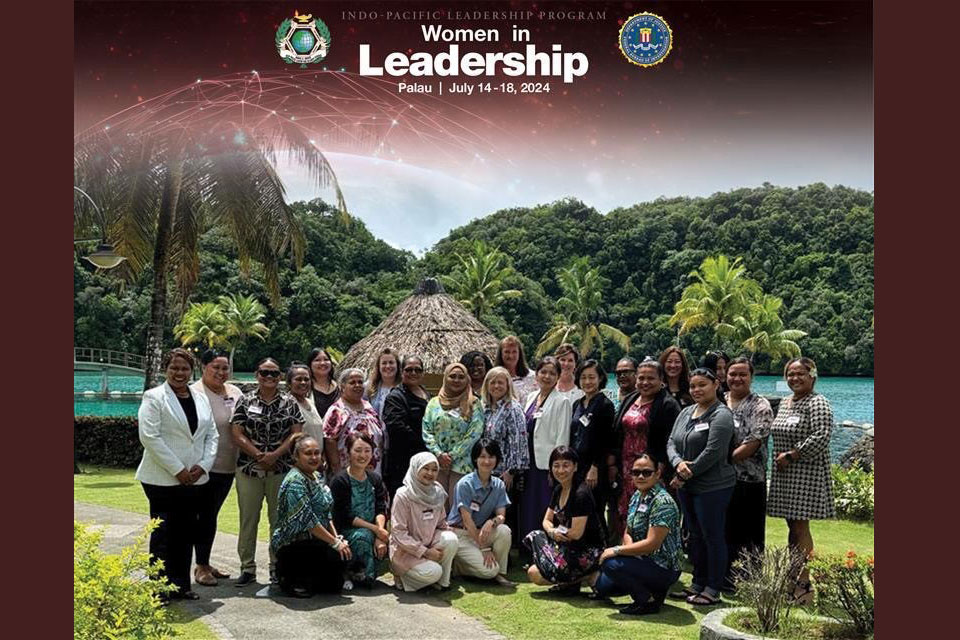
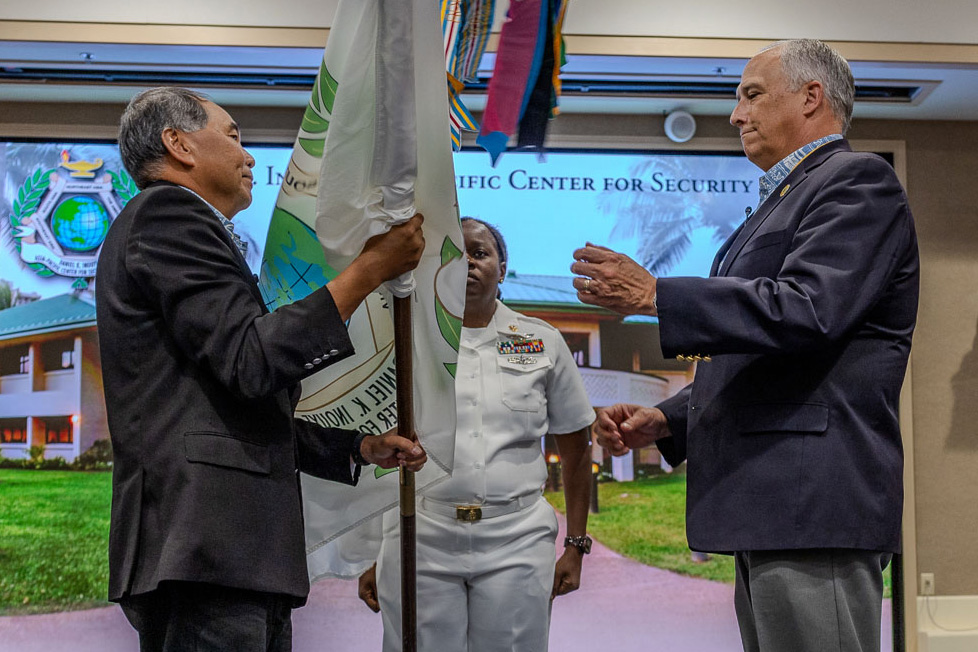
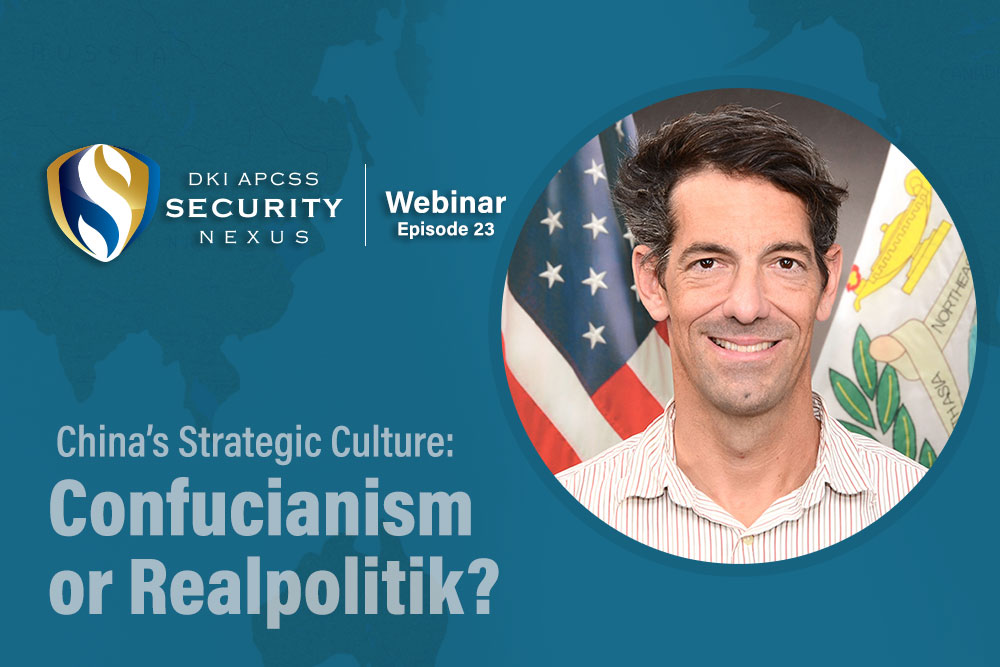




Leave A Comment